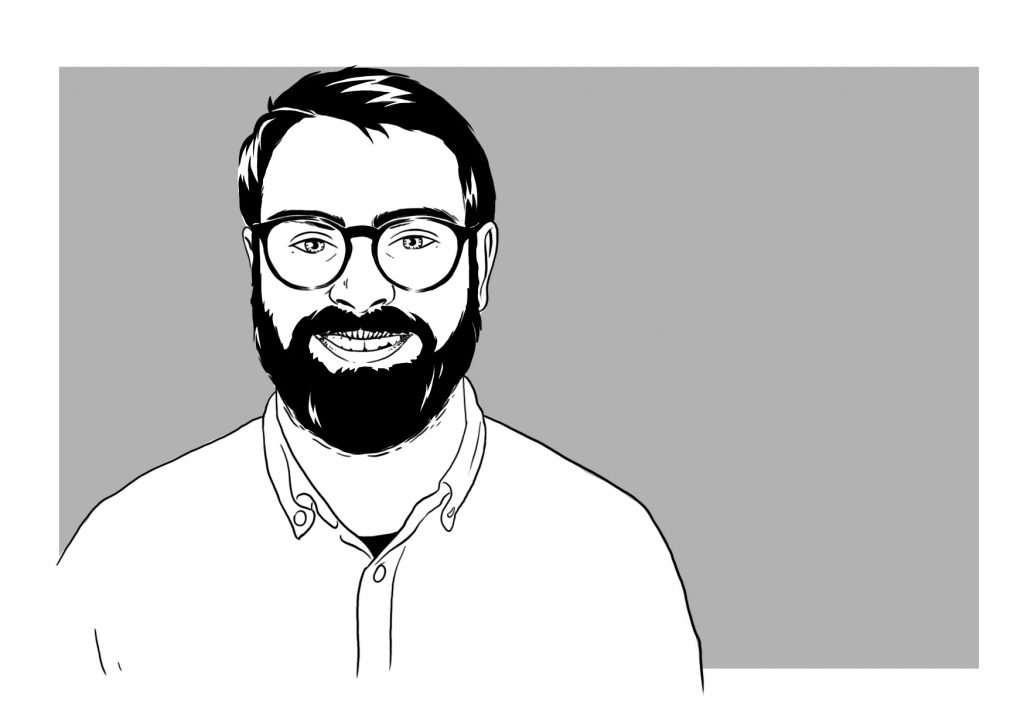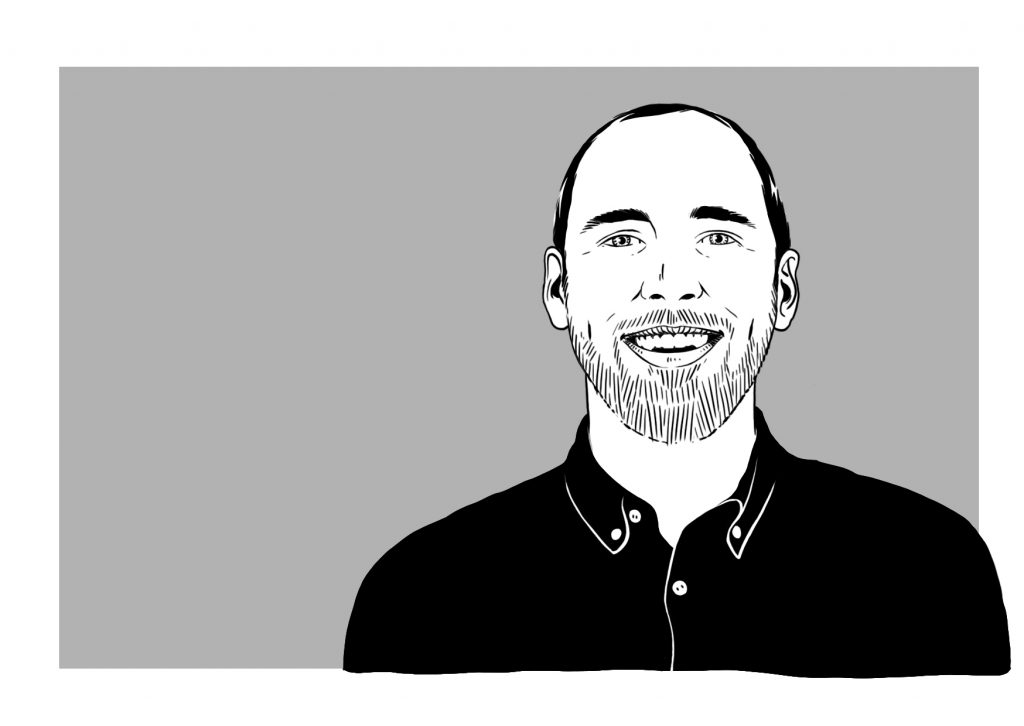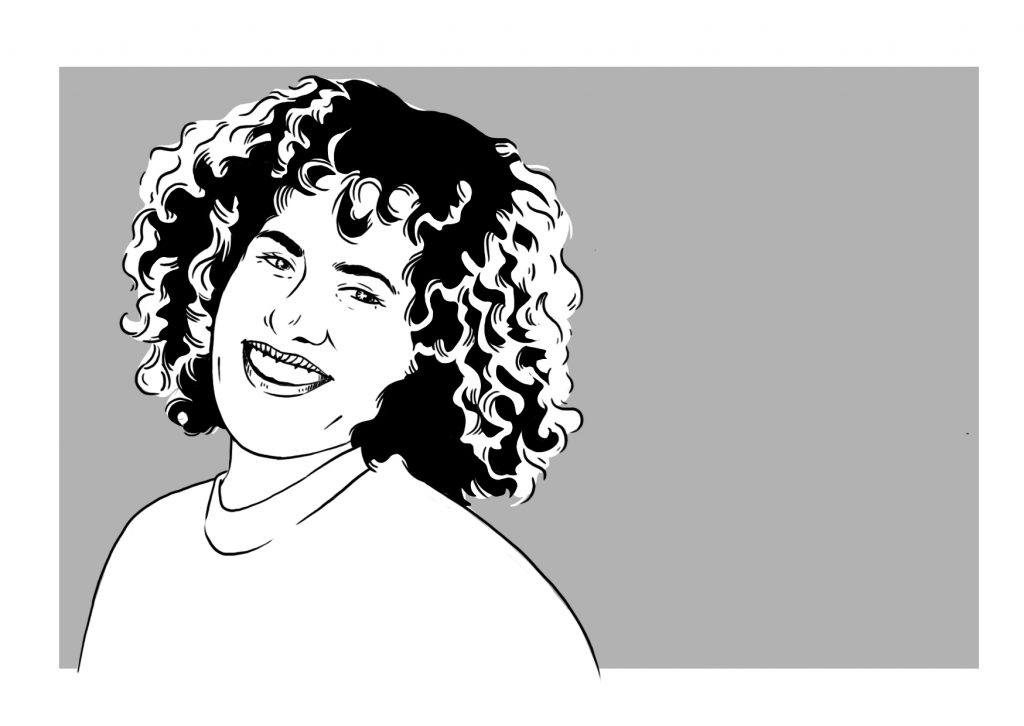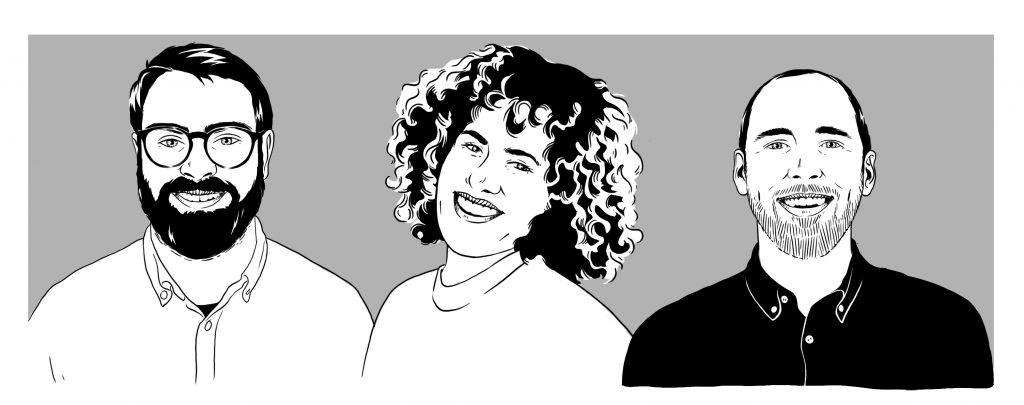With graduation fast approaching, soon-to-be alumni have one question on their mind: What to do next? Jumping into the real world is surely not easy. To get some tips, the Governance Post Editor Zoë Frisvold spoke with three graduates working in various fields, and learned how life after Hertie actually looks like
For starters, how about you introduce your workplace?
Alex Odlum: I work as an Analysis Team Leader at the Assessment Capacities Project (ACAPS), a non-profit organization providing unbiased information for assessment and analysis of humanitarian emergencies in Geneva, Switzerland.
Kyle Ott: I work as a data expert at the National Network for Safe Communities at John Jay College in New York City. It is an organization that advises and facilitates violent crime reduction initiatives across the world.
Vera Günther: I’m the co-founder of the social startup “mimycri”. “mimycri” is an innovative non-profit association Berlin-based that upcycles broken refugee rubber boats into high quality bags. It brings newcomers and Berliners together to collaborate designs for demonstrating SDG implementation.
When did you start thinking of getting a job?
Kyle: I began to actively look for a job more or less when school started, as a way of helping me refine my interests. While reading news articles, research papers or tweets, I constantly clicked on links to the website of the organization. I was reading about and looked at the career section. I kept a long list of saved job posts. And towards the end of the second year, I started reaching out to various organizations and companies, to learn more about the different roles.
Vera: When I started studying, I began to look for internships at organizations that I found interesting. One of the reasons I decided to do my Master at the Hertie School was the possibility to do a professional year. I absolutely loved the idea of gaining one year of work experience before I would even finish my graduate studies.
Alex: For me, it all started after the master thesis was submitted. During the summer, after becoming a graduate, this is when I began to worry.
What was the most challenging part of the job search?
Alex: I needed time to work out what are the different type of jobs which could match the skills I developed during my studies, and especially to understand the broader world of international development and what specific role I could fill within humanitarian aid.
Kyle: My real challenge was finding positions that fit my ‘in-between’ skill set: While I was decent at programming in R or Stata and have a solid quantitative research background, I struggled to find positions that were neither too technical nor entry level. My response to this was to better refine what exactly I wanted and to find positions that aligned with my skills and interests rather than constantly trying to fit my skill set and experience into an application that I knew would be read as a stretch.
Vera: It is always challenging to send out an application and not get a response or to be invited to an interview and not be chosen for the job afterwards. It is a learning process – to not take it personally and to view finding a job more as a match-making rather than something that I want and someone else offers. I am still disappointed when I don’t get the job offer after an application, but I do not take it personal anymore.
How did you come across your current job?
Alex: My job search was loosely framed by my internships and my master thesis, which were all devoted to humanitarian shelter programs responding to the influx of Syrian refugees. I spent a lot of time looking at the key organizations, such as UN agencies and NGOs working on these types of issues. ACAPS was one of those organizations I came across.
Kyle: I came to know about the National Network for Safe Communities by reading the work of David Kennedy and his frequent co-authors. I stumbled upon David’s articles while taking Prof. Christian Traxler’s Economics of Crime course. Weirdly enough, I found out about the job post for my current position through the R user community. My current employer had randomly posted the position in a forum that wound its way into the R-user blog to which I subscribe to the daily R-bloggers daily email digest.
Vera: I founded mimycri with one of my friends after our volunteering experience on the Greek island of Chios. We wanted to take some of the experiences we had there back with us to Germany and make them available for more people. We wanted to create awareness for the situation, and at the same time, offer possible alternatives for dealing with the situation. Now, three years later, we are a design startup that works with newcomers to Berlin and create meaningful designs as substrates of stories that have a positive impact. It’s exciting, innovative and wonderful work.
In what way do you think Hertie helped you in this process?
Alex: Generally speaking, I think Hertie helps students become aware of the network of actors involved in any given policy process, and that is really a crucial step. Additionally, the career development service of the school helps you a lot: we had a lot of chances to build up our professional skills which gives you a little extra edge to your profile when you are doing your application.
Kyle: I think Hertie helped me find my job by exposing me to a variety of topics and research, but my professors were the ones who helped me figure out my career path. Prof. Christian Traxler was a mentor to me (and still is). Working with him really helped challenge me to think about where I want to go and how to get there.
Vera: Hertie, first and foremost, introduced me to wonderful, inspiring people, one of whom became my beloved co-founder. It also equipped me with the right skills and experiences to better understand our society. It definitely helped me to be sure about what I’m good at and what I’m capable of. For this, I am truly grateful.
Looking back, is there something Hertie could do better in order to prepare students for the real world?
Alex: Even though Hertie has strong networks in some policy field, they are weaker in others. Luckily, the skills that Hertie helps students develop are transferrable and can be useful in any policy field, so you always have something to offer to any kind of organisation.
Kyle: Maintaining and nurturing a robust alumni network needs be a strong priority for the school, especially in different industries and fields (e.g. not just consulting or federal government jobs). I find it hard to connect with other students or alumni that might be interested in criminal justice topics, and there doesn’t seem to be a place to post for jobs or general inquiries.
Vera:As far as I know, there isn’t much in place to support students who want to start their own projects after finishing Hertie. It would be amazing if there was a certain budget for amazing start-up ideas, which could be pitched by students in their second year, ideally as the final presentation in one of their courses. It is always easier to start with some sort of seed funding. In addition, it would be great if students doing something like that could be matched with alumni that are already working on their own start-ups.
So what is the most important tip you can share with future graduates?
Vera: Talk to people and use your networks. So many things come up when you are keeping your ears and eyes open. And definitely look for things that excite you. It will make things easier.
Alex: It is never too early to think about what you want to do after your master thesis. But it is also important to be flexible when thinking or your long-term goal, so that you can find the right entry point into that world or find interesting ways to achieve it by stepping on other stones. Explore the landscape of the sector you are in interested in, through job advertisements for example. And never be too shy to express your interest in an organization – most of them are always looking for talents or people who share their missions or goals.
Kyle: Keep track of what is out there and look not only for what you want now but also what you want to work toward. Every time I visit the website of an organization, company or government agency I’m interested in, I look at what jobs are available. If I find one that I’m interested in, I take a screenshot and add it to my list, which goes back to 2012. You can also reach out to specific people in key positions in the organizations you are interested in – ask for an informational interview and be genuine about it. More often than not, I have found that people are very willing to meet for coffee or talk on the phone about their work and career path. And this is a small thing, but if you do end up meeting – send a follow up thank you email. It will go a long way!

Alex Odlum is an MPP graduate, class of 2015. He joined ACAPS as an Information Analyst in September 2015 and in 2016-2017, worked in Amman, Jordan, to analyse refugee and migrant flows from, through and within the Middle East and Eastern Mediterranean region. Prior to joining ACAPS, Alex’s work and research focused on displacement and migration.

Kyle Ott is an MPP graduate, class of 2016. In his role as a data analyst at the National Network for Safe Communities, he provides strategic advising to law enforcement partnerships focused on addressing group violence and intimate partner violence.

Vera Günther is an MPP graduate, class of 2014. Before co-founding “mimycri”, she was negotiating the Sustainable Development Goals on behalf of the German Federal government and worked on their implementation at the UN Environment International Resource Panel.
